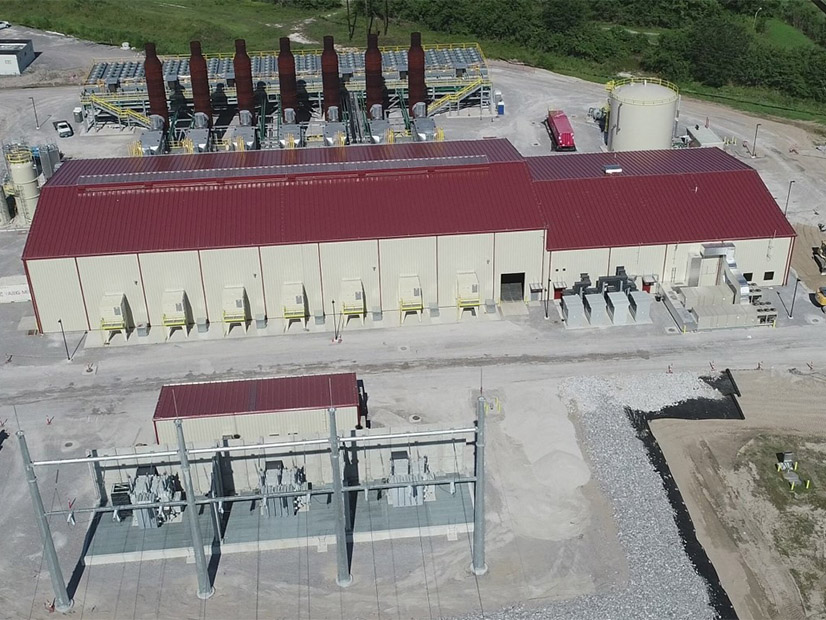MISO hopes to file a proposal in February to create an exclusive, faster route through its interconnection queue for generation projects that are key to maintaining resource adequacy.
At a special Nov. 18 workshop, Director of Resource Utilization Andy Witmeier said MISO hopes to have the fast-track process in place by June for generation projects that are key to sustaining resource adequacy over a five-year horizon. (See MISO to Devise Express Lane in Queue for Generation Projects that Keep Lights On.)
Witmeier emphasized that MISO sees the fast pass as a short-term fix, with a sunset date included in the proposal. That date would be based on the RTO’s best estimate for when it might have its interconnection process streamlined enough to achieve a one-year queue wait time for generation projects.
“It will take us time to get a one-year queue process,” Witmeier warned.
Some stakeholders said dividing the queue into two parallel processes with one given priority might result in two clogged queues, making MISO’s ultimate goal of a single, yearlong process even more unattainable.
Witmeier said MISO’s automatic withdrawal penalties in place for the traditional queue likely will curb the late-stage withdrawals that set restudies in motion and make processing sluggish.
“The restudies on the older cycles is preventing us from finalizing the newer cycles. … We’re plagued with restudies. And we can’t wait for that any longer,” Witmeier said.
“What I can tell you is, if I’m not down to a one-year queue cycle by 2028, I’m paying penalties,” he added, invoking FERC’s Order 2023.
Witmeier said that to enter the expedited process, generators must be part of a plan from a load-serving entity, be able to come online within three to five years for a known RA need, have network service to be deliverable and have endorsement by their state as a necessary project. MISO would not discriminate based on fuel type as long as a project is deemed essential.
The RTO is working with the Organization of MISO States on what documentation that states and authorities might use to demonstrate that a project is necessary, and how that documentation might differ for projects located in MISO’s deregulated areas.
Witmeier also said MISO will need to establish a cost allocation method for the projects. The RTO probably would charge a higher, nonrefundable application fee to cover staff hours for the studies, which will be conducted serial-style instead of in batches.
Clean Grid Alliance’s Beth Soholt asked what would happen if a project enters the expedited queue only to not ultimately receive a certificate of public convenience and necessity.
“Ultimately, whether or not to recognize that project is necessary as a resource adequacy project is up to that jurisdiction,” MISO Deputy General Counsel Kristina Tridico said.
“We think the likelihood of projects going into [the expedited queue] and dropping out is very low,” Witmeier added. Projects that have state backing are already usually considered foregone conclusions, he said.
Travis Stewart, representing the Coalition of Midwest Power Producers, said that even an express lane will not make RA projects “immune” from the exorbitant network upgrade costs often found in MISO interconnection studies.
But Witmeier said that under the expedited processing, developers should get a clearer idea sooner of network upgrade costs.
“We expect a lot of these LSEs will have done their due diligence and done their own studies on expected network upgrades,” he added.
So far, MISO is not proposing a withdrawal penalty for the expedited class of projects. Stakeholders asked it to reconsider that stance, arguing that even those projects could be canceled.
Sustainable FERC Project’s Natalie McIntire said existing projects in the regular queue might be harmed financially through expedited projects snapping up available transmission capacity first. She asked how MISO would make sure that the regular queue is still viable.
Witmeier said MISO will draw on the same system modeling for the regular and accelerated processes. He said projects in both queues would have a chance to claim transmission capacity on the system. After that, MISO would consider it unavailable.
McIntire said she did not see how, somewhere along the line, the parallel processes would not assign the same transmission spot to two projects.
“It seems to me we have a math problem,” McIntire said.
“It seems like an age-old problem that we’ve had, and we’re compounding it,” WEC Energy Group’s Chris Plante agreed.
MISO will hold another workshop to hammer out details on its expedited resource adequacy queue studies Dec. 6.




